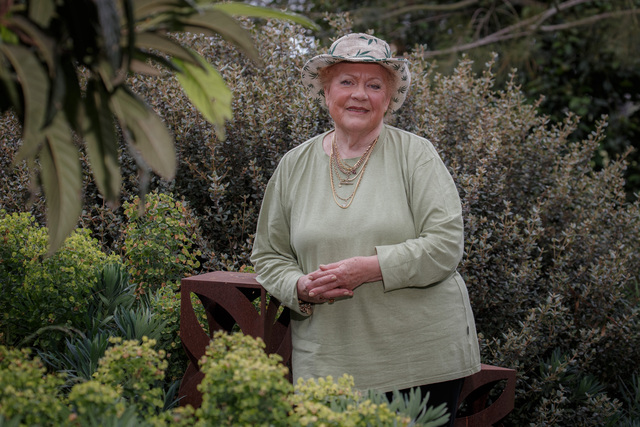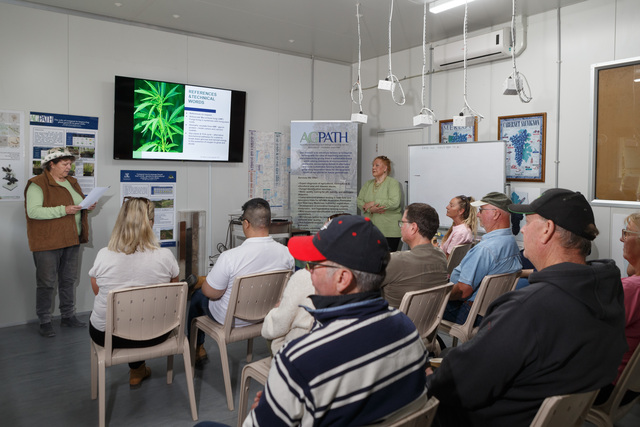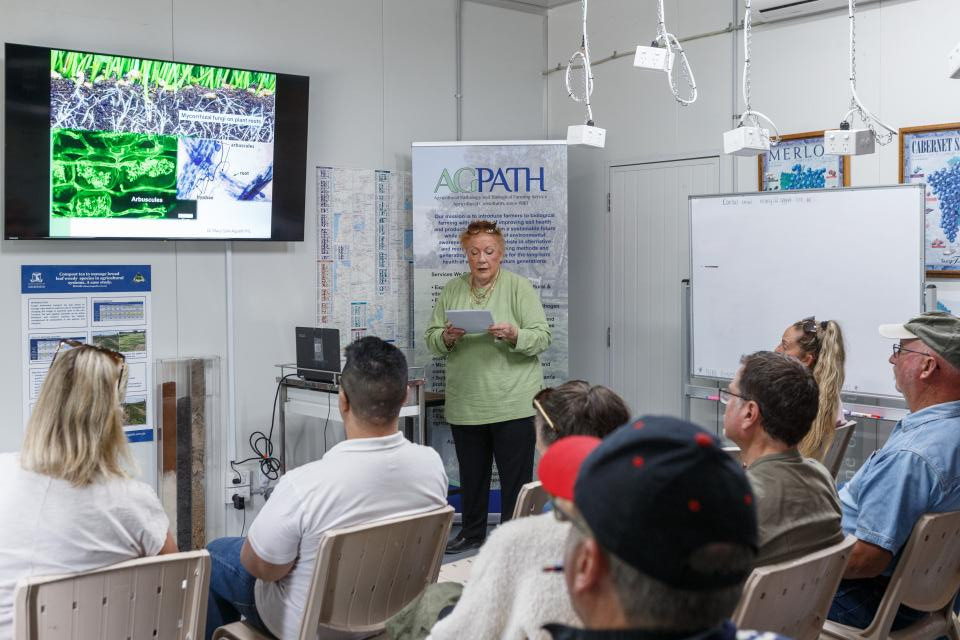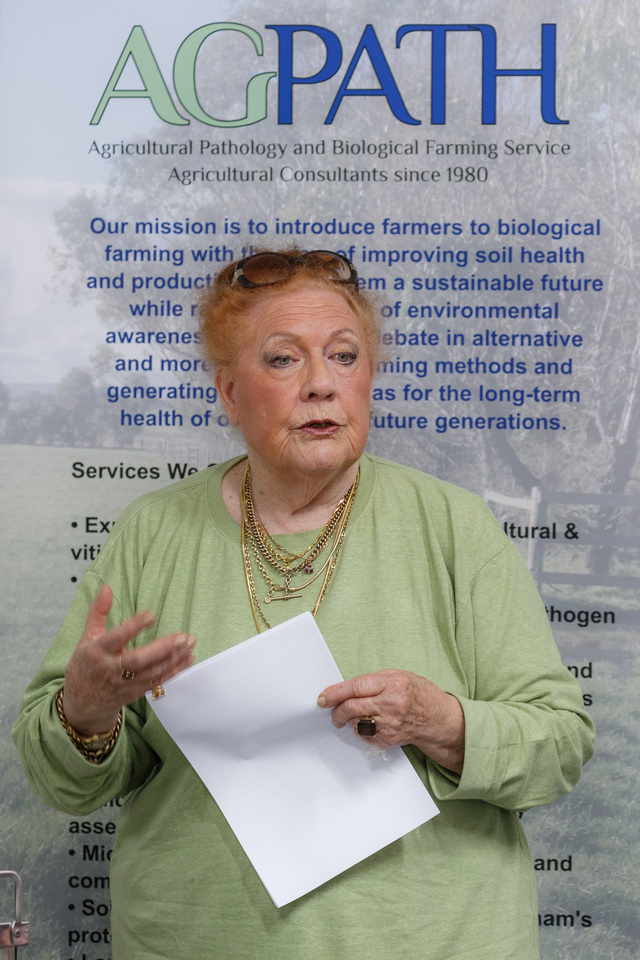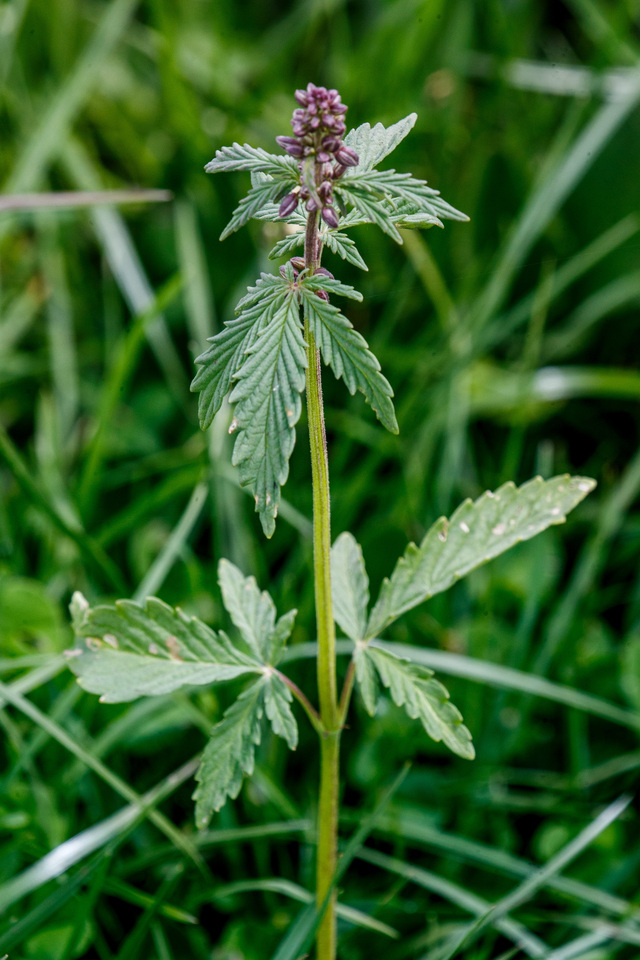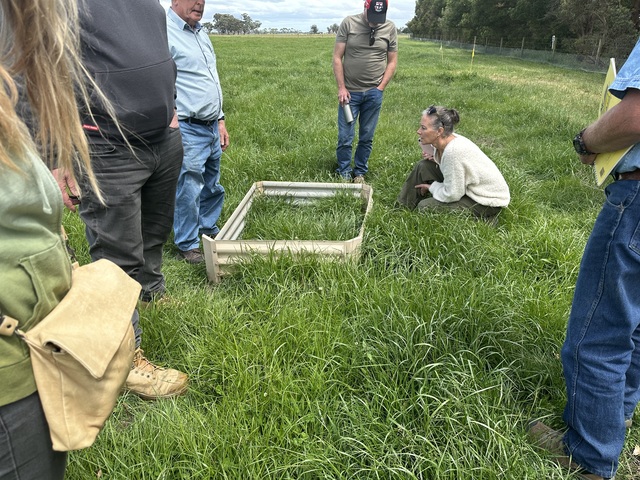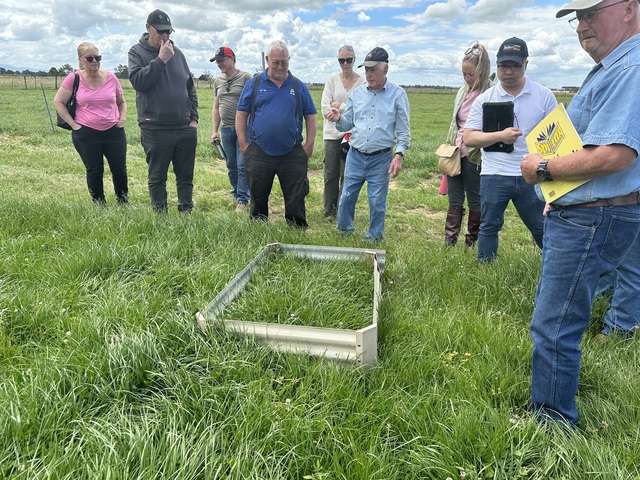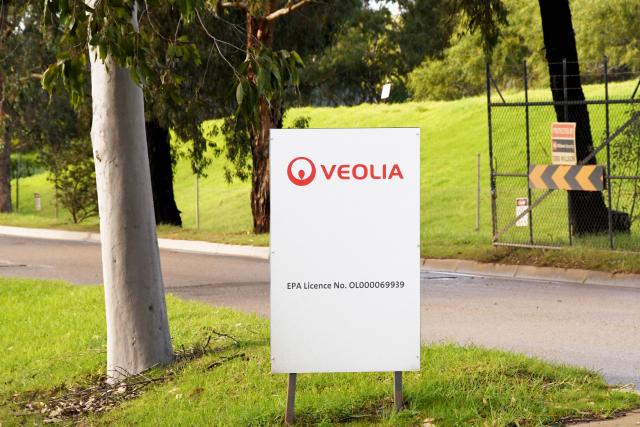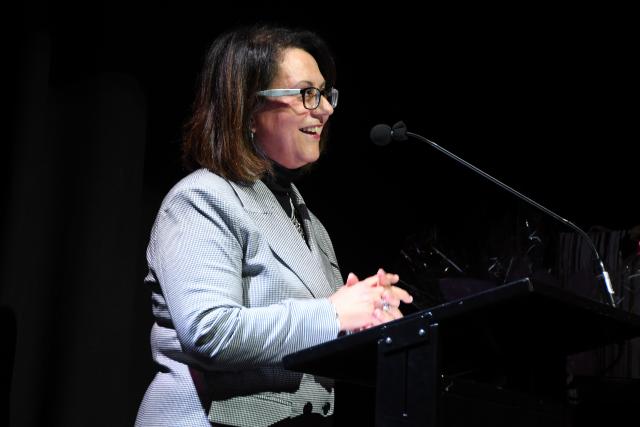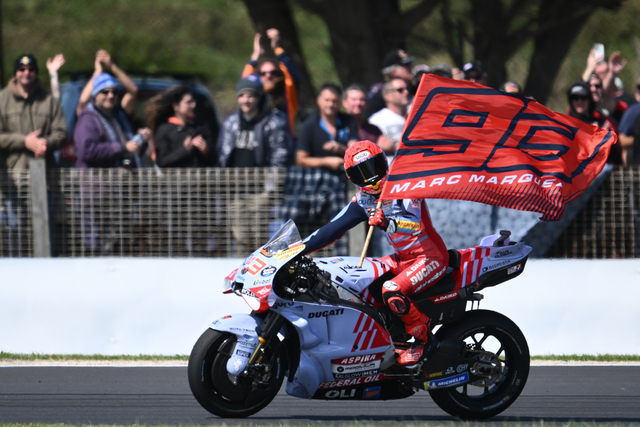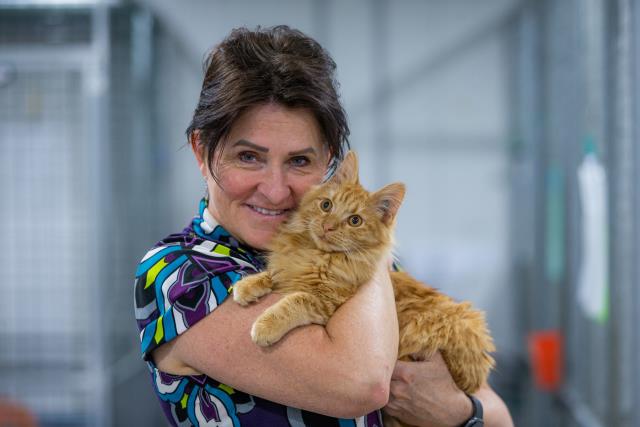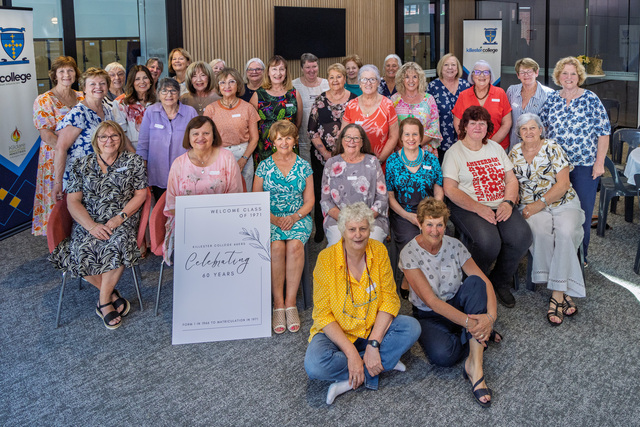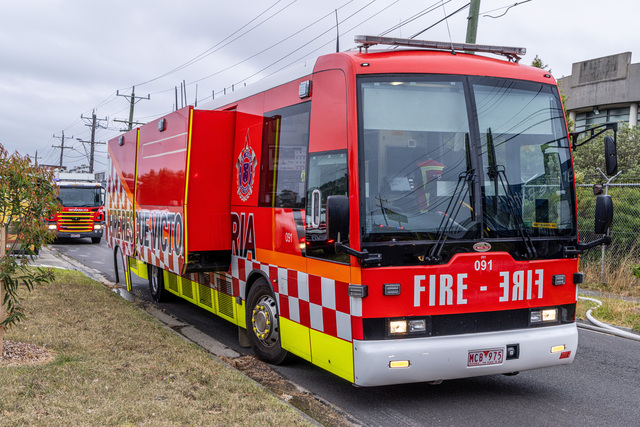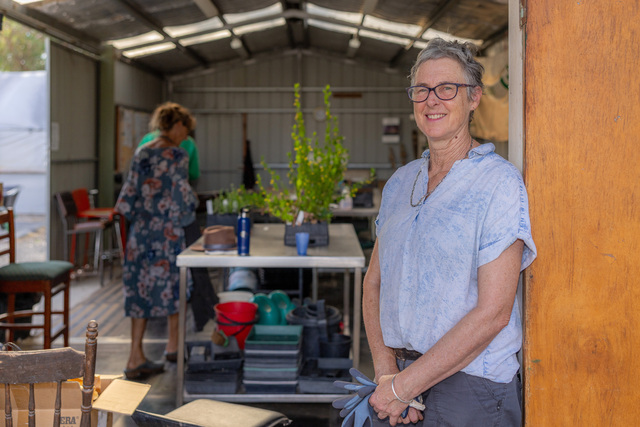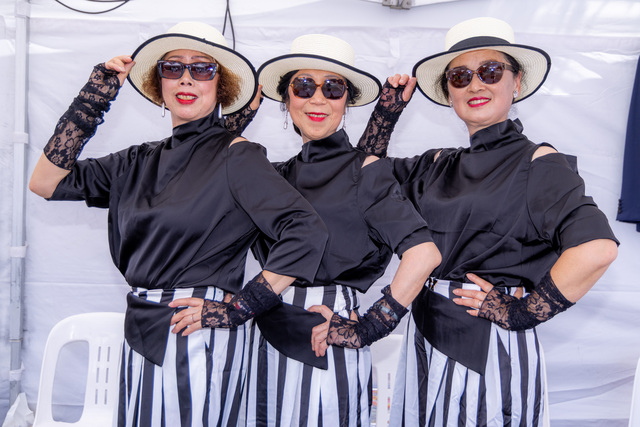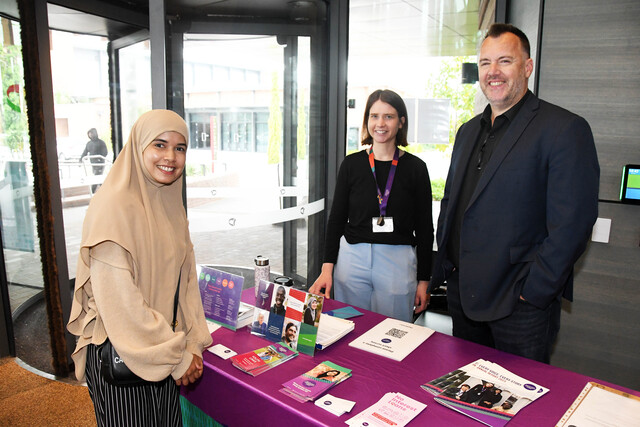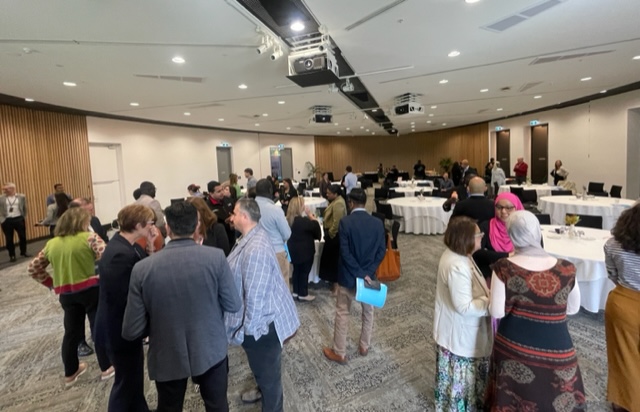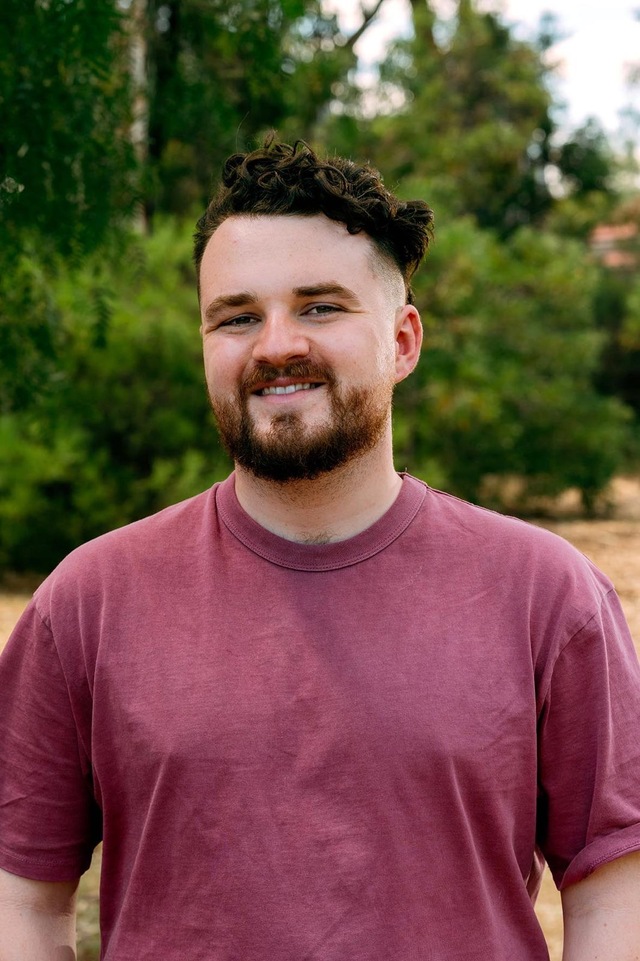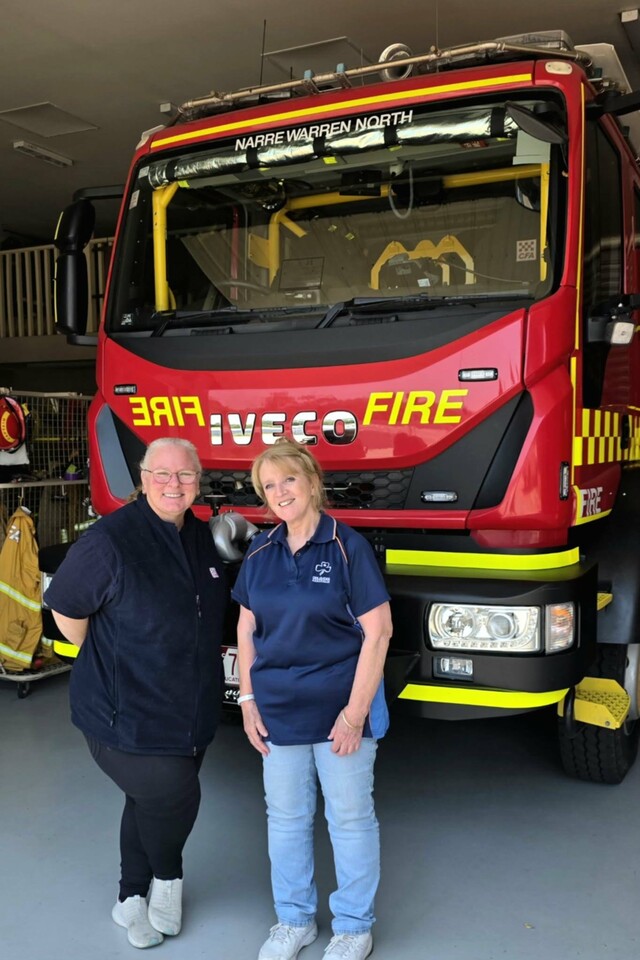PRECEDE: As for being bold for change, there’s no better time, no more propitious time, no more important time than now for women to be bold. Dr Mary has abandoned traditional synthetic chemicals, opening doors to a more sustainable future for agriculture, reports Afraa Kori.
BREAKOUT QUOTE: “I have been a woman in a man’s world of agriculture. I was way before my time. I have been advocating this form of soil protection for 45 years, my whole career.“
The Victorian Hemp Association successfully completed a biological trial that defies conventional norms.
Held on 10 Novemeber, the community day featured Dr Mary, a highly experienced plant pathologist, microbiologist and mycologist.
As part of the first biological trial, a hemp grower in Tasmania gave Dr Mary excalibur seeds to test in her farm in Garfield.
The aim is to test how well it would grow on the peat soil here in their farm, as well as how well it would out-compete the grass.
A highlight of the community day for attendees was Dr Mary’s keynote presentation on soil biology and how such farming can be a viable alternative to conventional farming. She also discussed how switching to biological agriculture is manageable, does work, and can improve soils while still producing enough food and crops to justify the investment.
Dr Mary’s chemical free approach is not just theory, many farmers are a living testimony.
She recently helped a broadacre wheat farmer in West Australian farmer change from synthetic chemistry to biological. He spends $3 million a year to buy the synthetic chemicals, and she swapped him over to what she does, and in one year his costs went from $3 million down to $29,000. His expenditures dropped greater than 90 per cent and his yield improved 30 per cent. She proved that it does grow and it will out-compete, because no one’s grown hemp on peat before.
Meanwhile she experienced many challenges in promoting chemical free farming.
“Having neighbours that run conventional synthetic chemicals farms, their weeds etc come onto our property. We try to be clean but we are infected by others. Asking people to believe in the power of the earth. People are used to using bandaids to try to fix problems. For example, if you have weeds an agronomist will tell the farmer to use herbicides to kill the weeds. What I suggest is you feed the soil to get fungi over bacterial domination and you will not have weeds.”
“People have become so organised, they’ve become removed from their source of food. What I’m doing in Singapore and other countries is bringing people back and saying, you don’t have to buy a strawberry that comes from Israel. You can get one from your local market, or you grow it in a little piece of land somewhere or other that your community is working with.”
“If they can’t grow it, you don’t eat it. Do you need a strawberry in the middle of winter? Well, no, you eat cabbages or whatever grows in the middle of winter so your food is fresh. It’s so simple yet it’s so hard. People in urban situations have become so removed from where their food grows that they think, milk comes in a bottle and carrots are in a plastic bag.They don’t actually see the ground that they’re growing in. Now you’ve got two or three generations that have been urbanised. It’s difficult to say to them you’re spending so much time at the doctor with your children because you’re growing unhealthy.”
Dr Mary has been fighting against big farmers and men all her career, which is a reminder that stereotypes and gender bias are embedded in the system.
“I tell them to look at the world wide literature and follow the data. I speak from experience. Do not criticise unless you have a go yourself. Look at your neighbours. some people do not want to know especially if they have been indoctrosed into synthetic chemicals or they sell chemicals. Chemical companies will not speak to me. Agronomists will not speak to me. My students tell me the companies will not communicate with me because I will destroy their business. I am a threat.”
Local resident and vice president of Victorian Hemp Association, David Brian added that the popularity of traditional synthetic chemicals overpowers her chemical free system.
“I think we’ll get to a point where we won’t be able to grow food and there’s already farmers in the Mallee who know that they’ve only got a growing medium left and they have to add everything to the soil to grow a crop so that’s the essence of our livelihood really.,” he said.
“The other big thing that’s really important is as our farming has become more reliant on chemical fertilisers the nutrition has dropped. So the research a few years ago found that a carrot in the 1960s in Florida had 20 times more nutrition than a carrot today. So you might think, ‘I’m being healthy by eating a carrot’ but you’re not. You’ve got to eat 20 times more. That’s probably the biggest thing for our soil health is that we’re going to improve the nutrient value of the food. It’s not just the bulk of the food, it’s the nutrients. So you don’t actually have to eat as much food and then technically don’t have to grow as much to get the required nutrition level.
“The whole system’s based on extracting as much money out of everyone for a few people for a few corporations, and they don’t like that. That’s why alternative health gets demonised because they don’t want a cure for cancer. Cancer the most profitable disease in the world because it does flow right through because you’ve got chemical foods, and those chemicals help hurt the body also parasites are more attracted to, it creates an acidic environment and parasites are more prevalent in an acidic environment whereas a more balanced diet of healthier food, there’ll be less parasites and there’s a belief that parasites are linked to cancer as well.”
“Mary said she had a farmer that had they did their soil test and they were putting all the phosphorus and potassium and all that on and when Mary tested the soil she said, you’ve got like 60 years of potassium here and 40 years of phosphorus and what’s happening is that the chemical fertilisers were stopping were blocking the uptake of those nutrients whereas a biological farmer makes all those nutrients available and you’re building soil as well.”
Surprisingly a minority is understanding the traditional way is not always good and there is a cost to pay.
“A lot of farmers are waking up going, ‘hang on, it’s getting harder to grow crops’, their yields are dropping and they’re now starting to look at alternatives and change especially as fertilizer costs are going up as well. So they’re stuck in this system where they have no control and they’re reliant on them. Whereas at least Mary’s system has them less reliant on outside sources and they’re not beholden to high fertilizer, pesticide or herbicide costs. So they become a bit trapped in the system, with the existing system whereas they can break away from that.”
Even more devastating, research suggest close to half of Australian farmers have had thoughts of self-harm or suicide.
“Farmers feel like there’s no hope, because they have to work so hard to cover the cost of all of these synthetic inputs that they’re buying. But if they don’t have to buy those synthetic inputs, they don’t have to work as hard and be in debt. A biological way lowers their input cost and it doesn’t take as much of their time.They can also make an income without having as high input costs, therefore, they can see that there’s a future for their farm,” Dr Mary said.
“So what I’m hoping is that when they see there’s another way to do things, there will be less suicides, because suicides among farmers is just tragic. If they do it the biological way, they’ve got time to relax, save the farm and they’re able to have a life with their family. It’s not only that our food and everything is healthier, our farmers are healthier both mental health and physical health. You can’t have nine billion people on the planet if you don’t have farmers. Farmers in Australia are not respected the way that they should be. So what I’m trying to do is to say the most important people in a community are not the accountants and the solicitors etc, it’s the farmers.
Her biggest goal is to pave the way and ensure systemic inequality does not perpetuate disparities in recognition, opportunities and representation among young women who look up to her.
“I have been a woman in a man’s world of agriculture. I was way before my time. I have been advocating this form of soil protection for 45 years, my whole career. Woman always has to be twice as good as a man. Men still speak over me. I spend much of my time now mentoring young women in stem. Women are getting a voice and young women are being more confident because they know this way is the correct way. They have the power of seeing what I have done and know me as a person who works with data not assumptions and stories,” Dr Mary said.

